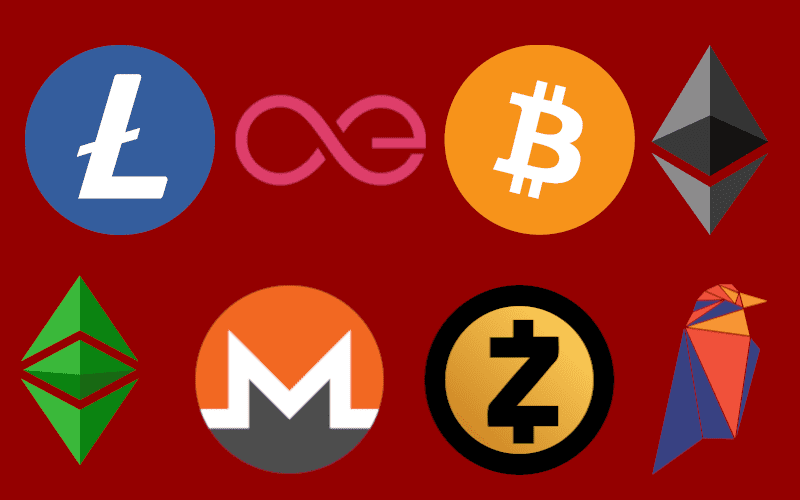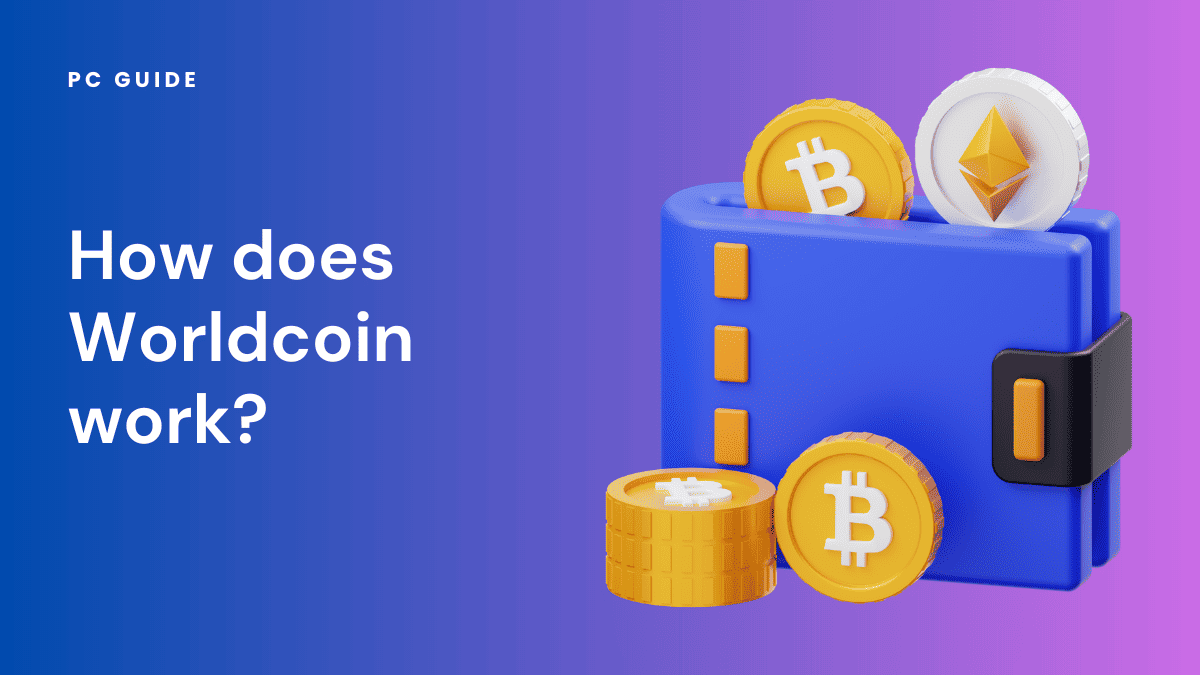Last Updated on
In the ever-evolving landscape of cryptos, a new disruption has emerged, Worldcoin. Spearheaded by Sam Altman, the founder known for his work in artificial intelligence, Worldcoin has piqued global interest. So, how does Worldcoin work?
This blog post aims to demystify the workings of Worldcoin, from its launch to its unique features. We’ll delve into the Worldcoin token, the role of the ‘eyeballs’ or iris scans in establishing unique identities, and how the Worldcoin wallet fits into the picture. Stay tuned as we unpack the buzz around Worldcoin.
Worldcoin: q new development in cryptocurrency
Worldcoin is an open-source protocol created to give everyone access to the global economy, regardless of their nationality, upbringing, or financial situation. Backed by OpenAI’s CEO, this initiative aims to address issues related to identity that prevail in the finance realm today with its distinctive World ID digital identification that protects privacy.
Understanding the Worldcoin Digital Wallet
The Worldcoin digital wallet is an essential component of the Worldcoin ecosystem. It’s a secure digital space where users can store their WLD tokens. Each wallet is linked to a unique digital identity, created through an iris scan.
This identity is represented by a unique string of numbers, which is stored in the wallet. The wallet allows users to send and receive Worldcoin tokens, making it a crucial tool for interacting with the Worldcoin network.
Understanding the WLD Token
The WLD token is the native cryptocurrency of the Worldcoin network. It’s the digital asset that users receive when they create their unique digital identity. The WLD token plays a crucial role within the Worldcoin ecosystem, serving as a medium of exchange and a store of value.
The Worldcoin Protocol: A Deep Dive
The Worldcoin protocol, the brainchild of Alex Blania and his team, is a set of rules and procedures that govern the functioning of Worldcoin. It outlines how tokens are distributed, how transactions are verified, and how the overall system maintains its integrity.
The protocol is designed to be secure, efficient, and scalable, ensuring that Worldcoin can accommodate a growing user base while maintaining optimal performance.
Worldcoin as a Digital Asset
Worldcoin, denoted by the WLD token, is a digital asset that holds intrinsic value within the Worldcoin ecosystem. It’s not just a form of currency, but an asset that can be used for various purposes.
Users can store Worldcoin in their digital wallets, trade it on cryptocurrency exchanges, or use it to access specific services within the Worldcoin network. As a digital asset, Worldcoin has the potential to appreciate in value over time, making it an attractive proposition for investors and users alike.
The Influence of Buterin and the Ethereum Network on Worldcoin
Vitalik Buterin, the co-founder of Ethereum, has significantly influenced the world of digital currencies. His work on Ethereum, particularly the introduction of smart contracts and the Ethereum Virtual Machine (EVM), has paved the way for many other digital currencies, including Worldcoin. Worldcoin, like many other digital currencies, operates on a blockchain network similar to Ethereum’s.
The Ethereum network’s ability to execute complex contracts and handle a variety of token types has inspired Worldcoin’s design. Worldcoin’s protocol, while unique, borrows elements from Ethereum’s design, such as the use of a similar consensus mechanism and the ability to handle smart contracts.
Making Purchases with Worldcoin: The New Age of Digital Transactions
Worldcoin isn’t just a digital asset; it’s a fully functional currency. Users can make purchases using Worldcoin tokens at any vendor that accepts them. This process is facilitated by the Worldcoin protocol, which ensures secure and swift transactions.
As the Worldcoin ecosystem expands, it’s anticipated that more businesses will begin to accept Worldcoin, making it a viable alternative to traditional and other digital currencies.
Worldcoin in the MIT Technology Review
The MIT Technology Review has covered Worldcoin extensively, highlighting its unique approach to digital identity and cryptocurrency distribution. The publication has discussed the potential of Worldcoin to democratize access to digital assets and provide a form of universal basic income.
Addressing Concerns of Deceptive Marketing Practices
Worldcoin has faced criticism and concerns, including allegations of deceptive marketing practices. Critics have questioned the project’s promises and its approach to user privacy. Worldcoin has responded to these concerns by emphasizing its commitment to transparency and user privacy.
Digital Currencies vs. Traditional Currencies: The Pros and Cons
The advent of digital currencies has brought about a paradigm shift in the way we perceive and handle money.
Unlike traditional currencies, digital currencies like Worldcoin offer a decentralized model of finance, free from the control of any central authority. This decentralization brings about several advantages, such as reduced transaction costs, faster transaction times, and increased accessibility.
Digital currencies are not bound by geographical constraints and can be accessed by anyone with an internet connection, making them particularly beneficial for unbanked or underbanked populations. However, digital currencies also come with their own set of challenges. Their value can be highly volatile, and their regulatory landscape remains uncertain in many parts of the world.
Additionally, while digital currencies offer increased privacy, they can also be misused for illicit activities.
You might be interested in

Best Cryptos to Mine in 2023
How does the Worldcoin ecosystem work?
The working of Worldcoin consists of three main steps: Scheduling an Orb visit, signing up on World ID, and using the World app for transactions.
The working of Worldcoin consists of three main aspects: Scheduling an Orb visit, signing up on World ID, and using the World app for transactions.
Scheduling an orbvVisit
Worldcoin uses an orb-shaped iris scanner to authenticate users. The Orb accomplishes this by taking and processing pictures of a person’s iris pattern. It offers a trustworthy method to differentiate humans from bots and AI-generated virtual identities.
Currently, Orb services are available in Dubai, Hong Kong, London, Los Angeles, Mexico City, Miami, New York, Paris, San Francisco, Seoul, Singapore, and Tokyo.
The Role of Irises in Worldcoin’s Identity Verification
Worldcoin’s unique identity verification process involves scanning users’ irises. This biometric data is then used to create a unique identifier for each user, ensuring that each Worldcoin wallet is linked to a unique individual.
This process not only enhances security but also prevents fraudulent activities such as double-spending.
Signing up on World ID
Another important aspect of the Worldcoin ecosystem is user sign-up. First, users must download the World App and scan their faces and eyes to establish a distinctive biometric profile.
Later, the user has to confirm his/her identification by requesting a government-issued ID and a selfie. Once the World ID is created, the user will be automatically registered on the World App.
Make transactions using the World app
Once the registration is done, the next thing required is the user’s bank account or credit card details to the World App. A user can send money by selecting the “send” option and entering the recipient’s World ID. Similarly, to receive money, the user needs to select “receive” and enter their World ID.
Worldcoin vs. Bitcoin: A Comparative Analysis
While both Worldcoin and Bitcoin are prominent digital currencies, they differ significantly in their design and objectives.
Bitcoin, the first cryptocurrency, was designed as a decentralized currency without the need for a central authority.
Worldcoin, on the other hand, aims to provide a form of UBI to its users.
Worldcoin and Stablecoins: A Comparison
Worldcoin and stablecoins are both forms of digital assets, but they serve different purposes and operate on different principles. Stablecoins are digital currencies that are designed to maintain a stable value by being pegged to a reserve of assets, typically a fiat currency like the US dollar.
Worldcoin, on the other hand, is not pegged to any other asset. Its value can fluctuate based on market dynamics, much like other cryptocurrencies.
What is Universal Basic Income, and How Does Worldcoin Factor In?
Universal Basic Income (UBI) is a socio-economic model where all individuals receive a regular, unconditional sum of money, typically from the government. This model aims to provide a safety net and ensure a basic standard of living for everyone, regardless of their employment status or income level.
Worldcoin, on the other hand, is pioneering a new form of UBI, where the income is distributed in the form of digital currency. By scanning their irises using Worldcoin’s unique orb device, users can receive Worldcoin tokens. This innovative approach could potentially democratise wealth distribution and provide a basic income to individuals worldwide, irrespective of their financial standing.
The Worldcoin community believes that this model of UBI can open up new avenues of economic opportunity and influence future governance models. The project has already been launched in several countries, including Chile, and has shown significant potential in driving global democratic processes.
However, the implementation of this model is not without challenges. The successful distribution of UBI through Worldcoin tokens depends on various factors, including the wide-scale adoption of digital currencies, regulatory acceptance, and the resolution of privacy concerns.
In conclusion, Worldcoin’s approach to UBI represents an innovative fusion of socio-economic policy and digital technology. While it’s still early days, the potential impact of this project on global wealth distribution and economic opportunity could be profound.
The Role of Tools for Humanity (TFH) in Worldcoin
Tools for Humanity (TFH) is a key player in the development and launch of Worldcoin. TFH is a non-profit organization that aims to democratize access to digital assets and provide a form of universal basic income. It has been instrumental in developing the technology behind Worldcoin and promoting its adoption.
Conclusion
Worldcoin is still in its beta phase. Hence, there will be many changes happening now and then. At the same time, you’ll come across praise and criticism too. Stay tuned to this space to learn more about the latest updates on Worldcoin.
FAQs
Is the Worldcoin ecosystem safe?
Worldcoin complies fully with all laws and rules governing the collection and transfer of biometric data. Worldcoin never collects a user’s biometric information without that user’s express permission.
How does the World app operate?
World App uses the Worldcoin and Ethereum protocols to make it simple for everyone to send money to anyone for free, explore cryptocurrency tokens, and simply authenticate their Proof of Personhood with World ID.

